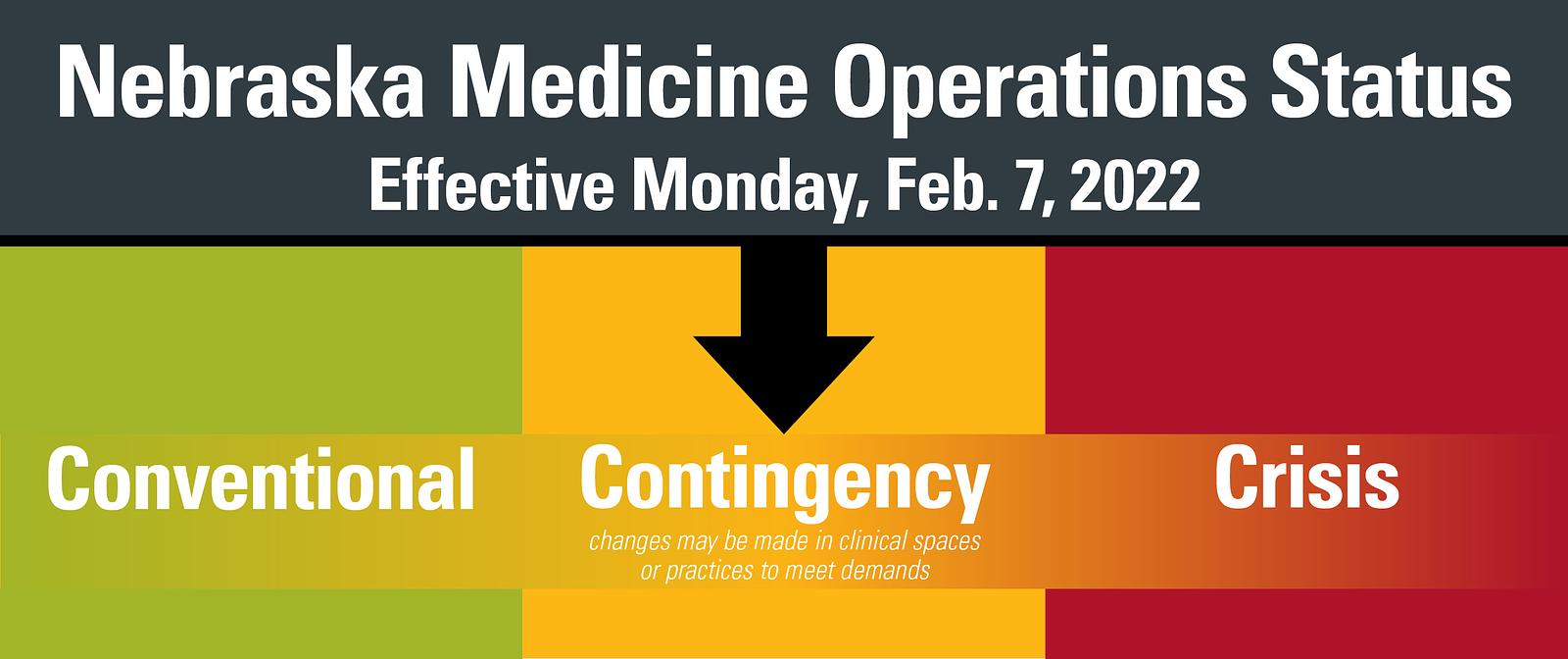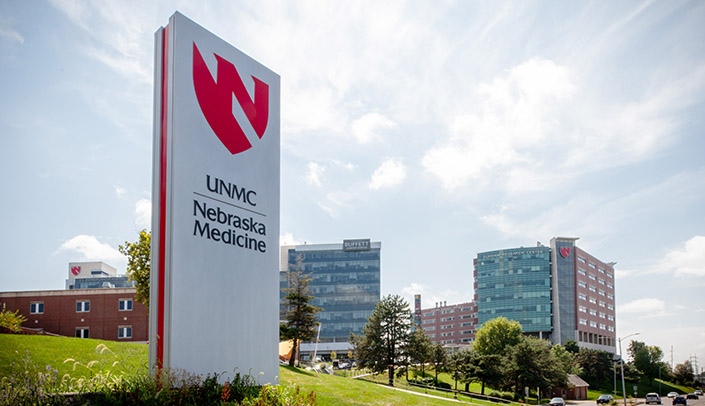Nebraska Medicine’s Crisis Standards of Care Oversight Committee has determined that beginning today, Nebraska Medicine will return to contingency operations and the crisis standards of care plan will no longer be in effect.
The committee activated the organization’s crisis standards of care plan on Jan. 13 due to unprecedented demand across the health system from spread of the omicron variant. During the time that Nebraska Medicine was under crisis operations, Douglas County not only saw a peak in the number of recorded COVID-19 cases but also a pandemic-high number of people hospitalized with the virus.
In his communication announcing the change, Nebraska Medicine CEO James Linder, MD, said there has been an overall decrease in COVID-19 admissions. For more than a week, COVID-19 discharges have been higher than COVID-19 admissions. At this point, Dr. Linder said it appears that Nebraska Medicine is no longer at risk of overwhelming its COVID-19 isolation capacity, as long as it continues to actively monitor and release patients from isolation restrictions as clinically appropriate. Additionally, test positivity rates and overall positive cases are decreasing in Douglas County. Fewer staff are out on quarantine or isolation.
Said Dr. Linder: "This surge has been challenging, and the work that you’ve done throughout this pandemic continues to demonstrate why our community depends on us for 'Serious Medicine. Extraordinary Care.' each and every day. Thank you for showcasing our ITEACH values, particularly in the face of crisis operations. Returning to contingency status doesn’t mean that our challenges are over, but we are in a better position to provide the care we pride ourselves on than we were three weeks ago."
 |
As Nebraska Medicine returns to contingency operations, the following updates will take effect in the coming weeks:
-
Week of Feb. 7: Nebraska Medicine will begin to responsibly increase access by making small steps toward pre-omicron operations. For this week, it will include opening additional operating room capacity at Bellevue Medical Center, with six rooms in service. All other procedure sites will continue with previously restricted operations. Direct/scheduled admissions and transfer acceptance will remain unchanged, and the health system will continue to evaluate the most clinically appropriate venue for COVID-19 patients and adjust as necessary. Ambulatory clinics will begin returning to pre-omicron levels for services that are not impacted by the directed health measure.
-
Week of Feb. 14: Village Pointe Health Center procedures and surgeries will resume, with cases at Fritch Surgery Center also returning to pre-omicron levels. Hixson-Lied/CL Werner surgeries will continue with current restrictions while variables including COVID-19 census, adult census and staffing are evaluated. Assuming it is not canceled sooner, the directed health measure from the Department of Health and Human Services is scheduled to end at 11:59 p.m. on Sunday, Feb. 13. After it expires, the corresponding procedure and surgery attestations in Epic will no longer be needed. In ambulatory clinics, complete return to prior operational levels beginning this week will be determined by each clinic/specialty based on review by clinic medical directors and operational leaders. Return to prior levels will depend primarily on provider and staffing availability. This process may take several weeks.
